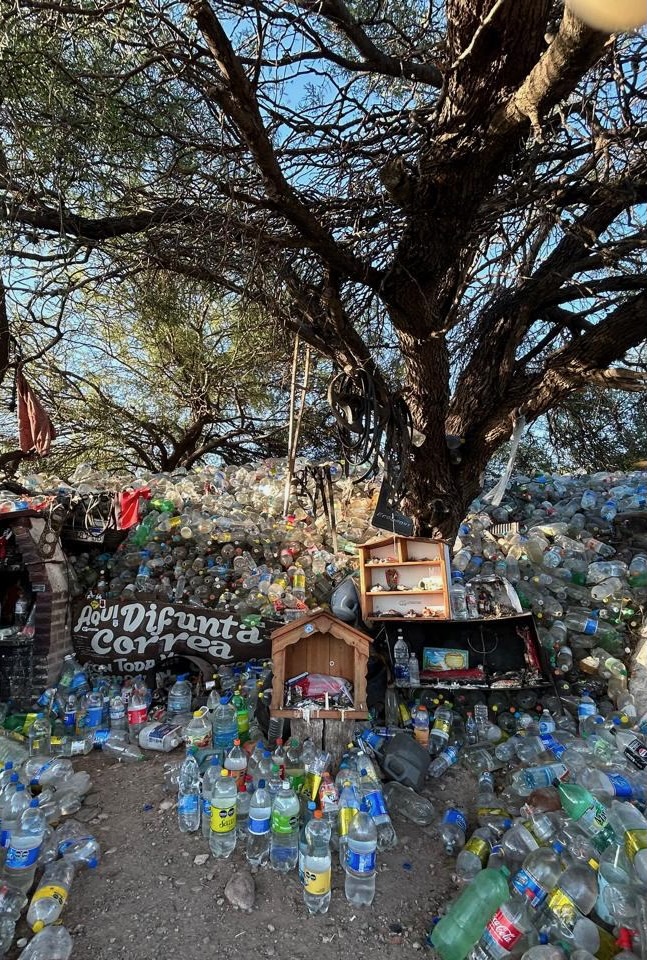
Photo courtesy of Viviana Gaeta.
Córdoba Province, Argentina
We drive past a great mound of plastic bottles,
the shimmering of a lake siloed into a thousand
tiny two-liters.
Your mother tells me the story of la Difunta Correa
in fragments of tragedy: A mother and infant, stranded
with no water. Searching for an ailing husband.
The mother’s perishing body still nursing the baby
to its survival. A folk saint’s first miracle.
It’s how they honor her, your mother says.

Photo courtesy of Viviana Gaeta.
Another time, I wander out into the jumble, notice
bottles stacked on their sides, bricked into walls.
Deeper in, amid sand-loving algarrobo trees, a makeshift
altar holds figurines and flowers, pictures of the saint.
Ribbon prayers.
Everywhere, those half-full bottles, the real offering.
Dusty, or clear and bright, transparent skin flashing
sunlight. A monument heavy with water. A shrine
to reclaim the disposable.
The algarrobos stand quiet, branches crowned with
thorns, las espinas. Spear defenders of the missing
carob fruit. Thin leaves, wispy as feathers, look
as though they have nothing to offer. But even
the lone tree at the center—a smooth mesquite,
parasitized by mistletoe, another symbol of loss
and survival—shades the altar where petitioners
lay their pleas.
Help me survive this.
I wonder if the trees know how close they are to water,
and whether water or thirst is more like devotion.
Perhaps someone has poured their bottle onto roots.
I think even this would find its way back to her.
Back at the car, your mother, our toddler’s abuela—Abu—
asks me what I think of the shrine. You are playing with
our daughter in the back seat. A borrowed sacredness
closes the distance between us. Any moment could be
the intercession that saves us. I draw in a burning breath,
imagine a future as I exhale. I begin to speak, but it will
take me years to say this.
Angela Sucich holds a PhD in Medieval Literature. Her poetry chapbook, Illuminated Creatures (Finishing Line Press) won the 2022 New Women’s Voices Chapbook Competition. She was honorably mentioned for the 2021 Pablo Neruda Prize and the 2020 Francine Ringold Award. Her poems and prose have appeared or are forthcoming in such journals as Nimrod, Atlanta Review, Whale Road Review and RHINO, and in the anthology, Rooted2: The Best New Arboreal Nonfiction (Outpost19).




